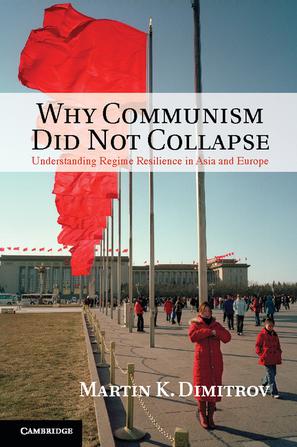欢迎来到相识电子书!
标签:威权韧性
-
Why Communism Did Not Collapse
This volume brings together a distinguished group of scholars working to address the puzzling durability of communist autocracies in Eastern Europe and Asia, which are the longest-lasting type of nondemocratic regime to emerge after World War I. The volume conceptualizes the communist universe as consisting of the ten regimes in Eastern Europe and Mongolia that eventually collapsed in 1989–91, and the five regimes that survived the fall of the Berlin Wall: China, Vietnam, Laos, North Korea, and Cuba. Taken together, the essays offer a theoretical argument that emphasizes the importance of institutional adaptations as a foundation of communist resilience. In particular, the contributors focus on four adaptations: of the economy, of ideology, of the mechanisms for inclusion of potential rivals, and of the institutions of vertical and horizontal accountability. The volume argues that when regimes are no longer able to implement adaptive change, contingent leadership choices and contagion dynamics make collapse more likely. By conducting systematic paired comparisons of the European and Asian cases and by developing arguments that encompass both collapse and resilience, the volume offers a new methodological approach for studying communist autocracies. Offers a new theoretical explanation of the resilience of communist autocracies that emphasizes the structural conditions under which these regimes are able to implement adaptive change Offers a new methodological approach for studying communist autocracies by conducting paired comparisons between the ten regimes that eventually collapsed in 1989�91 and the five regimes that survived past 1989: China, Vietnam, Laos, North Korea, and Cuba Makes a major empirical contribution to our knowledge of how communist autocracies function by: 1) adopting a global perspective onto the phenomenon of global communism; 2) analyzing unfamiliar adaptations, such as the development of institutions of accountability; and 3) using new evidence to challenge existing interpretations of communist durability (especially for countries like China, Vietnam, and North Korea) and of the eventual collapse of communist regimes in Eastern Europe and in Mongolia
热门标签
下载排行榜
- 1 梦的解析:最佳译本
- 2 李鸿章全传
- 3 淡定的智慧
- 4 心理操控术
- 5 哈佛口才课
- 6 俗世奇人
- 7 日瓦戈医生
- 8 笑死你的逻辑学
- 9 历史老师没教过的历史
- 10 1分钟和陌生人成为朋友

